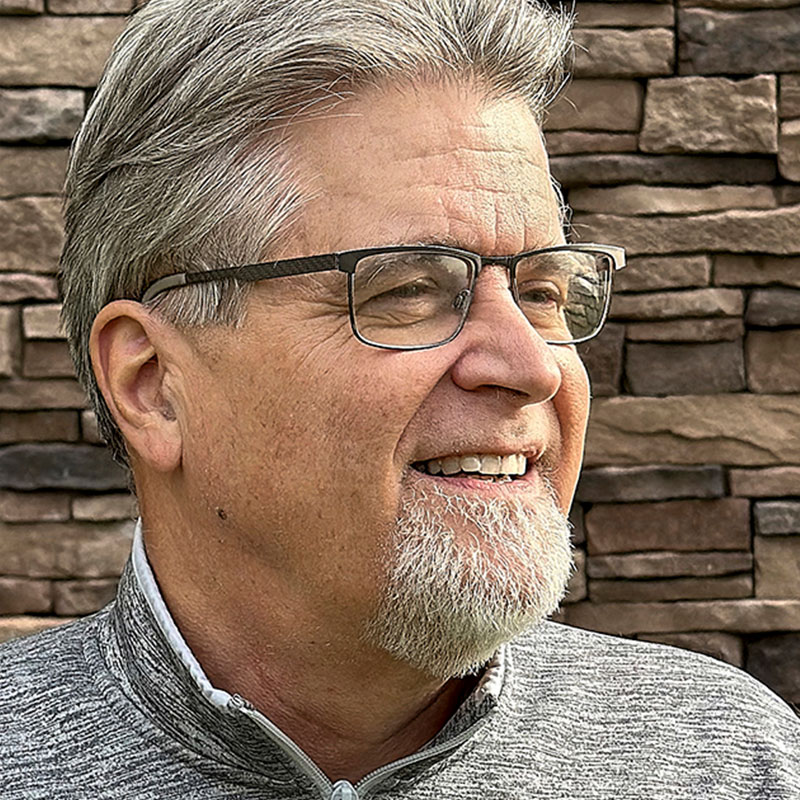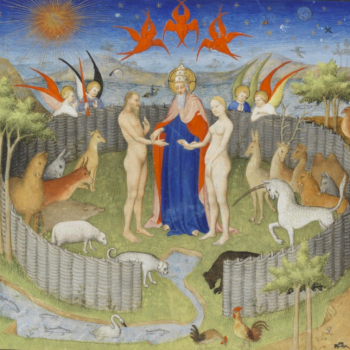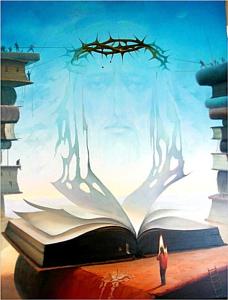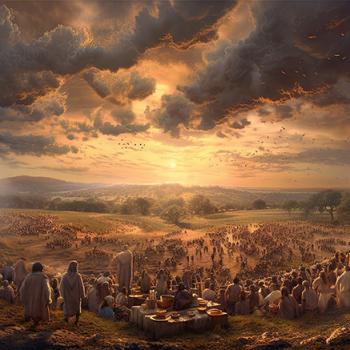
In my previous post, Why I Left Evangelicalism for Universal Love, I shared how I encountered religious cognitive dissonance—trying to hold two or more conflicting views at once—and how being honest about that helped me start deconstructing evangelical theology. When this happens to anyone, it’s easy to begin asking yourself questions to drive a faith shift, like: how can God be truly benevolent if he consigns three quarters or two thirds of humanity (depending on who does the math) to eternal separation from His loving presence? How can a loving God allow eternal conscious torment for those who simply don’t believe? He can’t, you rightly conclude. Or, how can the Bible be inerrant in light of its blatant inconsistencies both material and immaterial? It can’t be, is the logical conclusion. Okay, end of discussion. There can’t be a hell and the Bible can’t really be trusted. Or, can it? Now what do I do?
Go Deep When Deconstructing Evangelicalism
This is not a bad place to be. But it’s not a very good place to remain. Deconstruction demands we go deeper than our own sense of logic and what seems to us as right and wrong. Critics of deconstruction say progressives are just relying on feelings. We don’t like the idea of hell so we get rid of it. But anyone who has done a diligent job of deconstructing evangelicalism knows that it may start with feelings, emotions, inner red flags, and honest questions on things that don’t make sense, but it ultimately ends with new revelations that have to do with history. Not the standard history of popular Christianity but the myriad historical facts that lay under the surface and expose the modern “Christian” myths of our day.
Don’t Read Christian History Backwards
Erin Vearncombe, Brandon Scott, and Hal Taussig, in their historical narrative, After Jesus Before Christianity, tell us one reason popular theology is full of myths is because most of us read Christian history backwards. That means most everything is read through the lens of the present. Modern belief systems are projected back into historical narrative, not truly derived from them. It’s like we try to construct the building of Christianity from the top, like building a skyscraper by starting with the observation deck. But with whatever issue is being addressed, it’s critical to start with the foundations.
How Reliable is Historical Study?
But can we really be confident of our historical study? History is not an exact science but there is such a thing as historical facts and evidence. History uses a scientific method and works in the realm of probabilities. Historians cite evidence of “traceable factors” to establish a high probability that something happened. Using historical guides there are many things that we can tell either most probably happened, are disputable, or most probably didn’t happen. And a few things that we can say with confidence actually did or didn’t happen. Thus, for example, we can come to some solid conclusions about the history of the earliest Jesus movement of the first and second century (the foundational time) when we look at things like: (1) relevant sacred or biblical texts in the original language, (2) Jewish and Roman history and culture, (3) the linguistic, stylistic, religious, and cultural context of writings, and (4) in some cases archeological evidence.
Find Answers to the Critical Faith Shift Questions
In my experience, I have found its critical to answer the following historical faith shift questions to aide in deconstructing our modern concepts of Christianity and then rebuild a more historically honest faith of philosophy of life:
- What is the evidence that Jesus truly existed and was a wisdom teacher in first century Palestine?
- What was the sociocultural milieu in which Jesus arose in the first century?
- What was the Jewish purity culture of Second Temple Judaism? What was the Roman imperialistic culture?
- How was the Jewish Bible and New Testament compiled, copied, and translated? What is most likely reliable and most likely not?
- What New Testament translations are most accurate given the best Greek scholarship we have today?
- How did the Jewish people in general and Jesus and his earliest followers view the Bible?
- What does this tell us how we should perhaps view the Bible today?
- What other sacred “Christian” texts are worthy of knowing and reading?
- What really was the “good news of the kingdom” given the original audience?
- How did Jesus’ message contrast with the worldviews of the Jews and Romans and the common “violent sacrificial religion” of the day?
- Did Jesus or Paul or Peter found a new religion or church? If not, what was it they started?
- How did the first-century nascent Jesus movement primarily spread?
- Given cultural and historical context and the best original Greek sources, what were the earliest Jesus movement views on things like original sin, atonement, the end times, homosexuality, children, and women as equals and leaders?
- What was the “Great Reversal” of the third and fourth century that turned the Jesus movement into a Roman state religion?
- What was the “Church of the East” and how did it differ from Western Christianity?
- What was the original “ekklesia” (church) really like?
- How did it gradually evolve into a state church and later into what we have today?
- In light of the original first-century Jesus movement, where did the Protestant Reformation fall short?
- Is it really fair, given this history, to call “Christianity” the faith that derives from Jesus’ teachings?
- What new paradigm on Jesus’ message could one rebuild given these historical lessons learned?
- And finally, looking at today’s phenomenon of evangelical Christians embracing Trump, how does America’s right-wing political movement driven by grievances and retribution compare to Jesus’ nonviolent and restorative love ethic that still holds people accountable?
Rebuild Something Based on Foundational History
When we start answering these types of questions, we get to the bedrock of this faith movement started by Jesus and spread by his earliest followers. We can strip away the myths that much of conservative Christianity is based on (and some liberal myths as well) and find the things that matter most about the Jesus path. A good process of deconstruction and asking faith shift questions must include being diligent about learning the history of the origins of the faith. Without it, we are stuck looking at this behemoth called Christianity through the lens of the present. We may rebuild something, but it’ll still be reconstructing a skyscraper starting with the observation deck rather than the foundation.
******
Michael Camp tends the Spiritual Brewpub, which helps disillusioned or post-evangelicals (or “nones”) uncover historical facts and insights that help them deconstruct, rethink, and rebuild a more authentic faith or philosophy of life. He is the author of Breaking Bad Faith, Craft Brewed Jesus, and Confessions of a Bible Thumper. To get specific help deconstructing conservative Christianity and rebuilding healthy faith, see Michael’s Religious Deconstruction Workshop. To hear fascinating interviews with leading voices in the deconstruction community, listen to the Spiritual Brewpub Podcast.


















